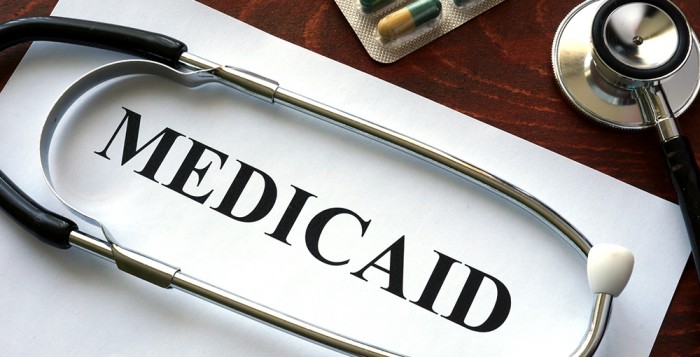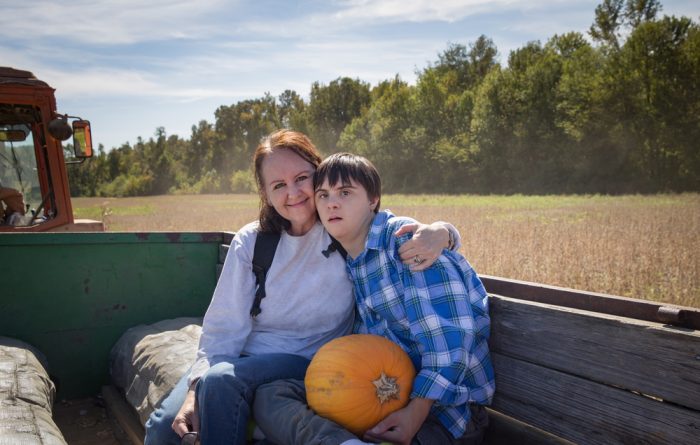Funding
White House Officials Say U.S. Has Exhausted Funds to Buy Potential Fourth Vaccine Dose for All Americans
Employment and Day Services Webinars — March 22 and March 24
Webinar: How Blended, Braided or Sequenced Funding Can Help Drive Employment, Equity and Inclusion
Tuesday, March 22 | 3:00pm–4:30pm ET
Register for the webinar.
The Administration for Community Living, along with federal partners at the Department of Labor, Department of Education, and the Social Security Administration, invite you to attend a federal interagency webinar hosted by the LEAD Center.
Demand for workplace talent is high. Remote work opportunities may be with us to stay. These conditions offer new opportunities for expanded access to workforce activities for people with disabilities.
To ensure that workforce programs are ready to meet this demand and can support job seekers and career changers equitably, programs often need to draw on a range of different funding sources. The ability to blend, sequence, or braid funding with other resources becomes an essential ingredient to support employment, equity, and inclusion. Yet each source of funding usually comes with specific goals, target populations, and performance indicators.
In this federal interagency webinar hosted by the LEAD Center, state practitioners across the workforce system will discuss how they successfully applied innovative, collaborative resource sharing that benefits both businesses and job seekers with disabilities.
Contact Dallas Oberlee with questions.
ACL/CMS Promising Practices Webinar Series: Rethinking Day Services —The Without Walls Approach
Thursday, March 24 | 3:00 pm–4:30 pm ET
Register for the webinar.
This webinar will provide insight into how a without walls approach can be used as part of a COVID-19 response strategy, how to train staff to shift from center-based services to community-based services, and what a without walls approach looks like in practice. For more info, please visit this link.
Signed Federal Appropriations Act Increases DDAP’s FY 2023 Budget by At Least $60M
With this week’s signing of the federal Consolidated Appropriations Act of 2022, the Pennsylvania Department of Drug and Alcohol Programs (DDAP) expects its budget for Fiscal Year (FY) 2023 to be at least equal to the current year’s budget of $378 million. Before the signing of the act, DDAP’s budget was $317 million. The difference was the result of a $60 million gap in a state opioid response (SOR) grant that has been restored. The majority of DDAP’s funding comes from the federal government, as opposed to state dollars.
As part of the Federal Appropriations Act, $3.9 billion has been budgeted for substance use treatment, including continued funding for opioid prevention and treatment, recovery, and tribal focused treatment efforts. This includes $1.85 billion for the Substance Abuse Prevention and Treatment Block Grant (SABG); $1.525 billion for SOR Grants; $34.9 million for Pregnant & Postpartum Women; $13 million for Building Communities of Recovery; and $101 million for Medication Assisted Treatment.
In its Senate Appropriations Hearing yesterday, DDAP said that, although the exact amount of Pennsylvania’s SOR grant for FY 2023 was not yet know, it expected it to be at least as much as the current year’s grant, which is $178 million.
DDAP Budget Hearing With Senate Appropriations Committee Set for Today
The Senate Appropriations Committee will meet for a budget hearing with the Department of Drug and Alcohol Programs (DDAP) at 2:30 pm today, March 16. The budget hearing will be livestreamed. Please note that RCPA provider members received an email from RCPA earlier this week that incorrectly stated the hearing was at 10:00 am today.
For Fiscal Year 2022/2023, the governor is budgeting a total of $317 million for DDAP, which is a 16 percent reduction over the current fiscal year’s budget of $379 million. The decrease is due to a $60 million reduction in federal State Opioid Response dollars.
More details of DDAP’s budget are available in DDAP’s Bluebook. In addition, a previous communication from RCPA about DDAP’s budget ahead of its House Appropriations Committee provides additional detail about the $317 million budget.
ANCOR Capitol Correspondence: Congress Passes Spending Bill Without COVID-19 Relief Funds
ARPA: One-Time Supplemental Payment to Address Staff Training, Credentialing, and Business Associates Programs for Employment
ODP Announcement 22-031 provides guidance about the process for providers and Supports Coordination Organizations to request one-time payments to address staff training, credentialing, and business associates programs for employment.
As part of the Office of Developmental Programs’ (ODP) American Rescue Plan Act (ARPA) strategy to strengthen Home and Community-Based Services (HCBS), providers can receive a one-time supplemental payment. The following activities would be supported by this funding:
- Agency adoption of Centers for Medicare and Medicaid Services (CMS) core competency training for Direct Support Professionals (DSPs);
- DSP National Association for Dual Diagnosis certifications;
- Agency completion of National Association for Dual Diagnosis Accreditation; and
- Lifecourse Ambassador Series for individuals or agency hosting of the series.
- Providers are encouraged to be creative in their proposals with an eye towards the development of creating or enhancing career ladders for DSPs, portability, and expansion of a well-qualified workforce and employing the principles of Lifecourse.
Providers interested in applying will need to complete and submit the attached Staff Training, Credentialing, and Business Associates Programs for Employment Supplemental Payment Application and submit via email to Rick Smith. Applications will be accepted through June 30, 2022. Funding may be requested up to 1% of ODP eligible service revenue from Fiscal Year (FY) 2019/2020, FY 2020/2021, or $100,000, whichever is greater.
Please see the announcement for full details of this program.
Medicaid Spending on Home, Community-Based Services Up by $116B
A Mom’s Nightmare: Where Will Derrick’s ‘Safe Place’ Be If I Can’t Find or Hire a DSP?
Urgent Request for RCPA PAC Support
The Rehabilitation and Community Providers Association Political Action Committee (RCPA PAC) is asking members to consider making a personal contribution. With these donations, we are able to provide financial support to state legislators or representatives who have demonstrated a strong, consistent, and positive interest in our legislative priorities.
With support of the RCPA PAC, we have been successful in supporting legislative leadership who understand the severe challenges facing many of our providers and who are willing to stand up for our issues as we fight to move Pennsylvania forward. Recent efforts we have closely followed include:
- The passage of Act 25 of 2018;
- Testifying at numerous House and Senate Committee meetings on gun violence, autism, community participation, and other issues affecting RCPA members; and
- Assisting with language for the 2021/22 fiscal budget to delay the implementation of ASAM requirements on drug and alcohol providers.
As we move into a new legislative year, efforts are now underway in multiple areas, including:
- Advocating the General Assembly to release federal funding that they placed in reserve for direct care workers (see RCPA media campaign);
- Drafting legislation to eliminate prudent pay for IDD providers;
- Working with legislative leaders and family advocates for children and adults with severe autism;
- Working with House and Senate leadership on rate increases for brain injury providers;
- Providing information to House and Senate leadership regarding how Drug and Alcohol Opioid Settlement Funds allocations should be distributed to drug and alcohol providers;
- Advocating the Governor/General Assembly and collaborating with the County Commissioners Association of PA (CCAP) and the Hospital Association of PA (HAP), as well as other organizations, to increase County Mental Health Funding;
- Working with legislators to Amend Act 25 of 2018, which RCPA helped draft, by introducing new legislation regarding outpatient psychiatric issues (HB 2294);
- Assisting legislative staff with their constituent issues regarding human services issues, such as consumer placements for services; and
- Advocating legislators and staff on rate transparency.
We urgently need your support to continue with these ambitious projects. While the request is voluntary, we encourage you to make a contribution of $100, $250, $350, $500 or more to RCPA PAC. For your convenience, you can now make an online contribution.
Thank you for your participation and support. If you are interested in learning more about RCPA PAC or donating, please visit our website, download the PAC FAQ Card, Donation Card, or email Jack Phillips, Director of Government Affairs.
Your participation in the RCPA-PAC is completely voluntary, and you may contribute as much or as little as you choose. Donations are not tax-deductible and will be used for political purposes. You may choose not to participate without fear of reprisal. You will not be favored or disadvantaged by reason of the amount of your contribution or decision not to contribute.
















